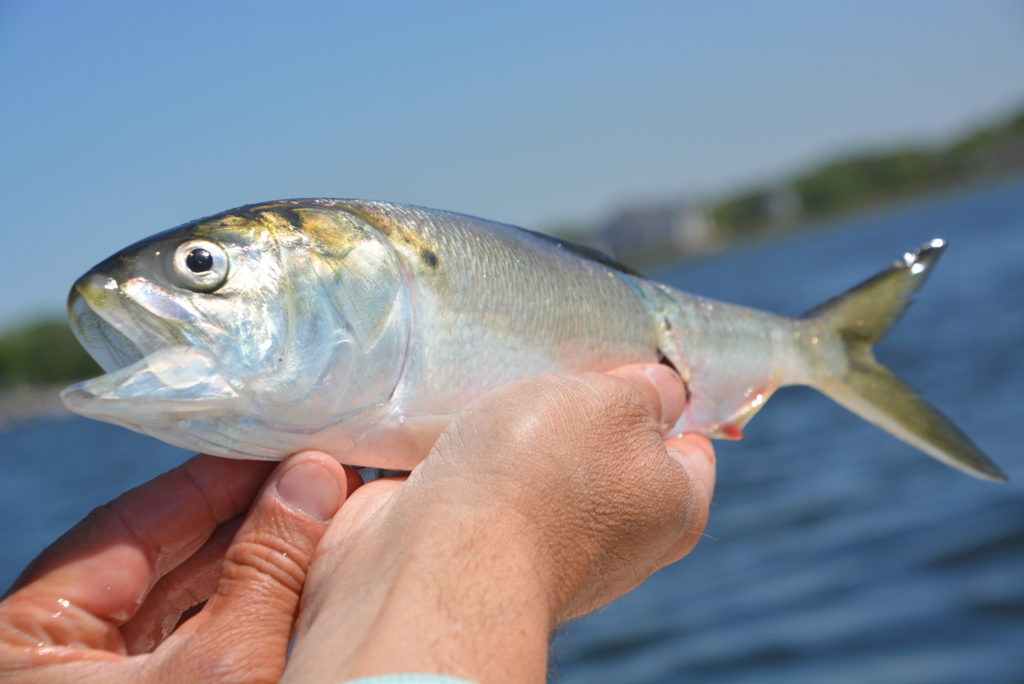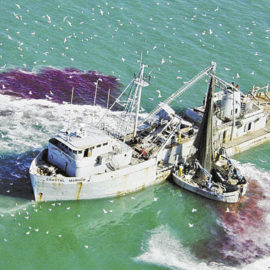
Dumping fish and nets should be illegal. But in Louisiana is it?
While it may seem like a given that dumping almost a million dead fish and abandoning an industrial-size net would be illegal, a recent incident off the Louisiana coast revealed that’s not necessarily so. Last month, an Omega Protein fishing boat overwhelmed by an unexpectedly big catch cut its 1,500-foot-long net and dumped an estimated 900,000 menhaden, most of them dead, near Holly Beach in southwest Louisiana. Despite several complaints, the wasted fish and abandoned net, which likely continued to kill other sea life, led to no fines or other enforcement action from the state. That might not be the case for future mishaps by the menhaden industry, which has lately come under fire for pollution and alleged harm to other fisheries, particularly recreational ones. The state Department of Wildlife and Fisheries is considering new rules that would prohibit the abandonment of menhaden fishing gear and requires the industry to make “reasonable attempts” to retrieve dead menhaden. “This basically codifies what some of us thought was already in the regulations,” Wildlife and Fisheries Commission Chair William “Joe” McPherson said at a meeting on Thursday.
nola.com
Pogie’s are small and not an editable fish but are used for other things.
Menhaden, also known as pogy, are small fish that are caught in vast quantities off the Louisiana coast and then ground up for fertilizer, pig feed and dietary supplements. By pound, menhaden are by far the state’s largest fishery, eclipsing Louisiana’s combined annual catch of shrimp, oysters, crab and crawfish. Conservation and fishing groups are concerned that menhaden nets are scooping up far more than just menhaden, likely harming stocks of redfish and other species, including birds, sea turtles and dolphins. State biologists maintain that the menhaden fishery is healthy and the impacts on other species are negligible. But few detailed studies have been done on the industry in the Gulf of Mexico and the state provides little oversight of menhaden fishing operations.
This was the first year that Louisiana regulated the fish even though Texas and Mississippi have been regulating them for years.
Louisiana’s first substantial restrictions on the fishery went into effect this summer. Menhaden vessels must stay a quarter mile from much of the coast, with larger buffers around Grand Isle and other islands. The industry’s critics say the rules fall far short of other Gulf states, which have effectively banned industrial-size menhaden fishing. A recent effort to put catch limits on the industry was blocked in the state Legislature. The Sept. 8 fish spill, which formed a rotting mass near the coast of Cameron Parish, sparked new calls for tighter regulation. Newly appointed Wildlife and Fisheries Commissioner Brandon DeCuir questioned whether the proposed rules go far enough, potentially leaving loopholes for the industry to avoid responsibility. DeCuir noted earlier pollution violations at Omega’s processing plant near Abbeville and allegations of habitual fish waste spilling at a plant owned by another company, Daybrook Fisheries, in Empire. He also cited a 2019 case in which Omega agreed to pay $1 million to resolve allegations that the company obtained a government loan by falsely certifying compliance with clean water laws. “You have a historical track record of shirking our rules,” DeCuir told Omega spokesman Ben Landry. “We not criminals,” Landry said. “We’re not bandits out on the water. This line questioning that we’re criminals is offensive.” Landry blamed the Sept. 8 fish spill on “an absence in judgement” on the captain’s part. The allegations of falsifying clean water law compliance, he said, was the fault of a “rogue employee.” The commission approved a notice of intent on the proposed rules on Thursday. That triggers a period for public comment and an eventual vote on a resolution, likely to be scheduled in the coming weeks.
With the new Wildlife and Fisheries Commissioner maybe qualified and open minded people will be working for the state.



